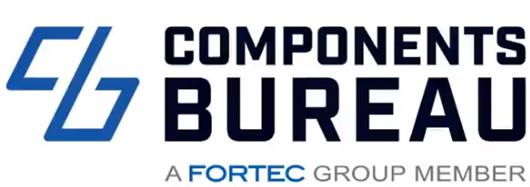 Add My Company
Add My Company
Sign In

The world’s manufacturing sector has largely ground to a halt due to the on-going disruptions to global supply chains. International travel restrictions and seismic shifts in demand and supply due to the Coronavirus pandemic has left dents in our highly globalised distribution networks. In many markets, this has led to dramatic reductions in supply. Burdened by a complex manufacturing process, is the semiconductor or integrated circuit (IC). Global shortages in ICs have decimated the supply chains of many key industries, with the poster-boy of this semiconductor crisis being the automotive industry. Industry analysts believe that the shortages will affect automotive production for at least two years.
However, the semiconductor shortage stretches far beyond the automotive and consumer electronic industries and has leaked into the industrial power supply market. This could have huge ramifications for your system design lead times. Today we’ll discuss how we reached this point and how we at Components Bureau can help you avoid the on-going IC supply chain catastrophe.
How did this happen?
It’s extremely easy to blame the IC shortage on Covid and yes, the pandemic has created the “perfect storm” to generate these huge supply chain difficulties. However, without the underlying vulnerabilities in the manufacturing process, the strong effects of the pandemic’s disruption may not have been so long lasting. The causes of our current woes can be attributed – according to analysts – to globalisation and the ‘just in time’ or lean management process and an explosion in demand.
At the beginning of the pandemic, many IC manufacturers scaled down production due to an expected fall in demand. Whilst this did happen and industrial and commercial machine production and automotive production did slow down, what many chip makers didn’t anticipate is the large spike in demand that followed. With many semiconductor factories still scaled down, manufacturers just haven’t been able to respond to the surging demand.
This surged demand can be seen in sectors like consumer electronics, where sales of mobile phones and tablets skyrocketed as the world’s consumers were stuck inside. Poor planning afforded by the high-efficiency ‘lean management’ process adopted by much of the world meant that chip makers didn’t have the stockpiles to respond to the changes in the market, whilst travel restrictions and quarantine measures has made it even more difficult to move components around the world in the same time frames we were used to pre-pandemic.
How it affects power
According to a survey conducted by the Qt Group, the sector that has been hit hardest by the current IC shortage is the Industrial Machinery and Electric Equipment sector. 60% of firms in these sectors state that securing supply chains and ensuring an adequate supply of semiconductors is more important now than previously. In our world of lockdowns and contracted supply, the long international supply chains to develop systems previously relied on for its cost-efficiency is now hampering the industrial and electrical ability for fast production cycles.
Intel CEO Pat Gelsinger warns that it could take a “couple of years for the ecosystem to address shortages of foundry capacity, substrates and components,” meaning ICs aren’t going to be readably available anytime soon.
This has resulted in power supply lead times reaching unprecedented levels – with many predicting these delays in manufacturing to last well into 2023. These lead times could stretch up to six months or even longer. Electrical components are at the back of the queue for ICs as the world’s computer chip giants struggle to meet global demand, meaning system designers could be left waiting months longer for product completion.
The Solution: Introducing MORNSUN
Here at Components Bureau, we recognise system designers value reducing these lead times as much as possible. That’s why we’ve worked with a handful of power supply partners to ‘side-step’ the current global IC shortage and avoiding the power industry’s place at the back of the queue for semiconductors.
One of these new partners is MORNSUN, who hold an IP for their own IC design. MORNSUN have much greater control over their supply chain, ensuring power supplies are at the front of the line to receive their custom ICs. This strengthens any designer’s route to market by removing unnecessary delays in sourcing components.
By opting for power components from partners like MORNSUN, we’re sizing down our complex supply chains and even when the current global shortages subside in a few years, MORNSUN’s tight grip on their own supply chain affords greater resilience to disruptions in the fragile global manufacturing network.
One of the products with great availability to get your production back on the track is the MORNSUN LMF series. These power modules have a universal input voltage of 85-264VAC and can be used for either AC or DC output. The LMF1000 can deliver up to 1KW of output, perfect for high power applications like EV charging, communication, lighting and industrial machinery.
For your DC-DC power convertor needs, the MORNSUN PV Series is a perfect and reliable DC power supply. This product is designed for photovoltaic power, allowing control systems to get power directly from solar powers to increase reliability and sustainability. For medical applications, MORNSUN offers the LOF series. These robust power supplies over 2xMOPP certification including high 4000VAC isolation and extremely low leakage. For medical devices where fast lead times is highly critical, MORNSUN’s very own IC supply chains ensures your product gets off the ground in weeks, not months.
Contact us today to see how we can get your production back on track. We can help select the right power components for your specific application and our knowledge of the global power supply chain network can help you improve lead times and reduce design cycles. Get in touch today to see how we can help you avoid the global semiconductor shortage.
For more information on How the global IC shortage affects power supplies and how we can avoid it talk to Components Bureau
Enquire Now
More News
List your company on FindTheNeedle.
